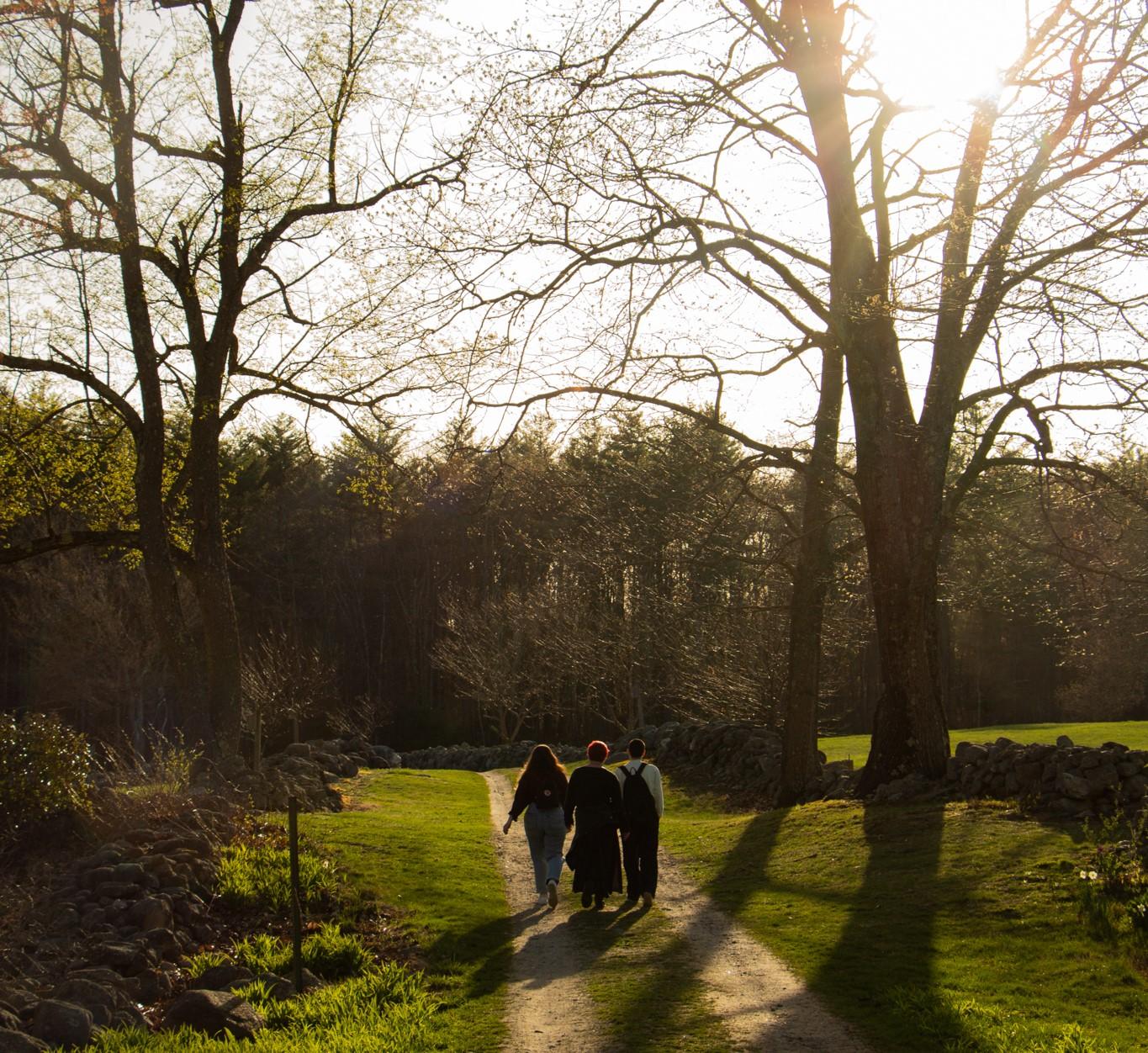- Tags:
- Recreation,
- Stewardship

Be like these walkers and stick to marked trails! (Photo: Sophie Oehler)
One of the hallmark signs that spring has arrived is the uptick in visitors heading out to visit New Hampshire’s most beloved places. It is also the perfect time of year to remember what it means to recreate responsibly and help care for the resources we all enjoy.
The New Hampshire Division of Travel and Tourism Development has partnered with the Leave No Trace Center for Outdoor Ethics—a national stewardship program—to help craft new recommendations for minimum impact practices while spending time outdoors that are specific to the granite state.
“We felt it was important to tailor that messaging and make it New Hampshire specific to speak to our needs, as that would better resonate with visitors and residents recreating here,” said NH Travel and Tourism Director Lori Harnois. “We worked closely on our messaging with an Advisory Group made up of people from the state, whose professional and volunteer roles are part of New Hampshire’s outdoor recreation industry, as they see first-hand the impact from uninformed recreationists.”
Key goals of New Hampshire’s Leave No Trace (LNT) initiative are to try to reach visitors before they arrive and incorporate the messaging at contact points all across the state. To help with this, a Partner Toolkit has been developed that includes posters, website graphics, social media templates, partner logos, and instructional materials which are all free to use. Making it easy for industry providers to inform visitors makes it easier for visitors to adopt the recommendations.
As a provider of many outdoor spaces across the state, the Forest Society is helping to spread the word about these new principles.
“Many of the original LNT principles were developed for recreation out west, and the language doesn’t translate well for New Hampshire recreators,” explains Carrie Deegan, reservation stewardship and engagement director for the Forest Society. “The new NH specific guidelines are really straightforward and understandable to an audience of primarily New England hikers. Instead of asking people to ‘travel on durable surfaces,’ for example, we now say ‘stick to trails.’ These are little word choices that make a big difference.”
Do your part by following New Hampshire’s Leave No Trace principles and practices:
- Know before you go: Learn about the areas you plan to visit and do your research ahead of time. Have a plan B ready in case you encounter crowded parking lots, trails, and potential closures. Remember to park safely and check weather conditions. Be informed about the activity you are planning to pursue. Care for your pets, and know their limitations.
- Trash your trash: Pack it in, pack it out, and bring it home with you. Consider going the extra mile and pack out items you find that aren’t yours. Use bathrooms or outhouses when available or bury your waste appropriately when away from facilities. Pack out your pet’s waste and help keep water sources clean.
- Leave it as you find it: Leave plants, rocks, and historical items as you find them so others can enjoy them too. Avoid damaging living trees and plants. Remember to rinse/drain and dry your boat trailer and all water recreation gear after every use, which helps prevent the spread of invasive aquatic species.
- Be careful with fire: Use local firewood and don’t bring firewood from home, which may harbor tree-killing insects. Check campfire guidelines and make sure it’s permitted and safe in the area you are visiting. Consider using a camp stove to cook. Use existing fire rings and don’t leave burned trash. Ensure that fires are extinguished completely and are cold to the touch before you leave.
- Keep wildlife wild: Observe wildlife from a distance, don’t feed them, and store your food and trash securely.
- Share the outdoors: Be friendly to others you encounter outdoors and be kind to one another when passing on the trail. If you are using an OHRV, reduce your speed when passing non-motorized users. Recreate during the week if you can flex your schedule. Keep your pet under control to help protect them, other visitors, and wildlife. Be courteous if you are using technology outdoors and consider using headphones.
- Stick to trails & camp overnight right: Walk and ride on designated trails whenever possible. If you are using a motorized vehicle, be sure that you are allowed to use it where you are riding. Find durable surfaces or pull-offs if you need to stop and take a break. Remember to respect private property. If you are camping, plan ahead for your overnight camping experience and make sure you have made any necessary reservations ahead of time. Camp on existing or designated campsites.
This spring and summer, look out for new signage and information about Leave No Trace at your favorite New Hampshire recreation destination. Every outing is an opportunity to adopt the practices that apply to your trip, and avoiding impacts helps ensure our shared resources will be sustained into the future.
For more information: Find the LNT/VisitNH toolkit at: visitnh.gov/industry-members/work-together/lnt-toolkit.
Matt Scaccia is the recreation & community relations manager for the Forest Society.
